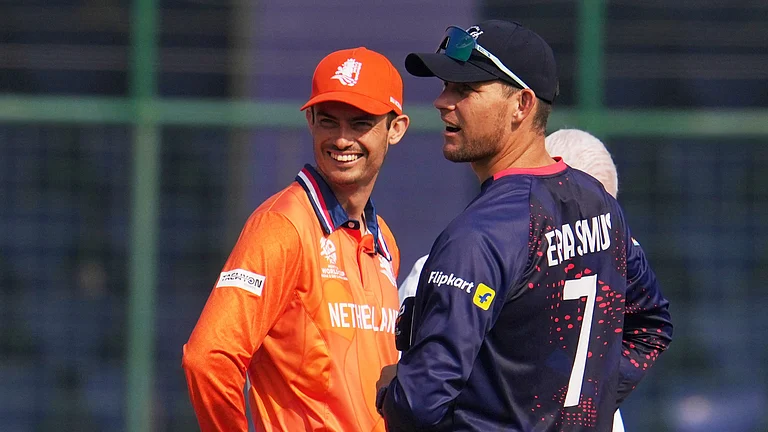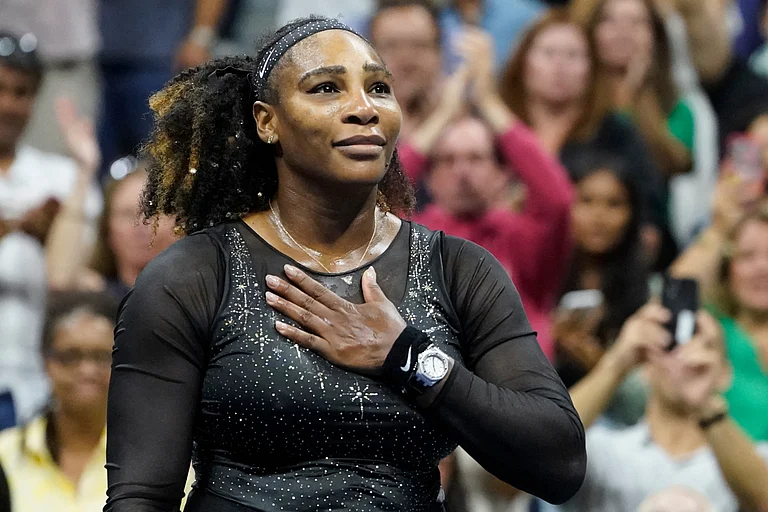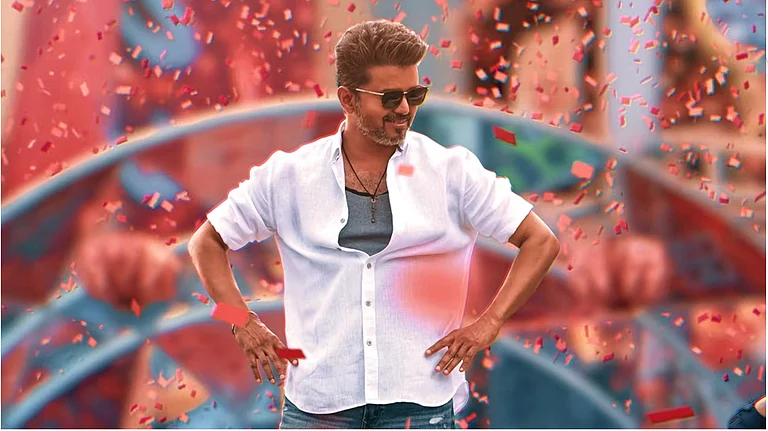IF Elections Preferred were a bond floated on the stockmarket today, it would sink without a trace. Yet, as the events of the past fortnight clearly dictate, an inexorable march towards political meltdown, ie elections, seems imminent. So the brave-words-brigade in each party is in the fore. But there is also an accompanying sotto voce campaign to the effect that it would be 'near-criminal' to spend Rs 500 crore of taxpayers' money within two years of the last poll. The common refrain among MPs—regardless of party affiliation—is: "We haven't had the time to do anything for our constituencies, we were elected for five years." But the basic reason for Indian legislators displaying a previously hidden coyness about placing their fate in the hands of the "sagacity of the Indian voter" has everything to do with party affiliations and the uncertain political firmament.
BJP The party is rather gung-ho after its success in UP. But internal assessments underscore what most know already: that the BJP did close to its best in 1996 when it virtually swept the north and the west. The south and the east (minus Bihar) remain mostly outside the Sangh parivar's sphere of influence.
In Bihar, where the BJP-Samata Party duo has put up a creditable challenge, a rejuvenated Laloo Yadav in alliance with the Congress and the Jharkhand parties is likely to prevent anything more than a near-equal division of seats. And for all the emphasis the BJP think-tank is putting on the other three—Karnataka, Andhra Pradesh and Orissa—of the "four crucial states" electorally, tangible gains are only a medium, if not long-term prospect.
So the search for allies in these regions remains crucial for the BJP. In this effort, the party has suffered a dual setback. First, the United Front is sticking together. While the BJP claims, with some reason, that this "sink or swim together" policy of the UF could prove only temporary, the party leadership is deeply worried by this unity. The DMK, TDP, AGP and even the TMC were being seen as potential post-election allies if the party played its 'stability' card, contradictions in support base and ideology notwithstanding.
Besides, now, with the regional parties having tasted power in a very real sense for the first time, they may not agree to be mere appendages to an aggressive, ideology-driven party. But even this scenario presumes that the BJP will do equally well, if not better, in the north and the west compared to the last election, which is by no means a certainty.
In UP, where the BJP won 51 (of 85) seats in 1996, the party will be in serious trouble if the SP-Congress-BSP "grand coalition" materialises. And the BJP is at its strongest in UP; in nearly all the other important states it is as faction-ridden as the Congress. In fact, shorn of posturing, the reason why the BJP considered a shot at government formation rather than polls is its uncertainty over the post-election scenario.
CONGRESS For the grand old party, there is just one certainty. That it is utterly petrified of polls without a Gandhi-Nehru family member at the helm. Indeed, withdrawing support to the UF regime was simply a result of the internal politics of the party. And the impatience of Congressmen to grab a slice of the power pie. Party sources say Kesri was under no illusion about the Congress' readiness to face elections and would have preferred that the state units be in better shape and finalise alliances with the likes of the RJD, TMC, BSP and SP before pulling down the government.
Because on its own, the Congress has virtually no hope of improving its tally of seven MPs from UP and Bihar, which together send 139 MPs to the Lok Sabha. Even in the PANJIAR, S. NAYAK south, where the Congress is in comparatively better shape, many senior leaders are not in favour of an immediate election. Says a Congress MP: "Those Congressmen who have pushed us towards polls are Rajya Sabha MPs, losing candidates from the last polls or leaders trying to prove their loyalty to Sonia Gandhi." And ample evidence of the unease which has gripped the party at the prospect of polls is Kesri staking a claim to form the government just to keep his flock together.
UNITED FRONT Perhaps the keenest among its constituents to avoid an election is the TMC. It knows that polls would mean only two unacceptable options: forsaking the Nehru-Gandhi dynasty by allying with the DMK or risking being labelled a votary of the "all Tamils are anti-national" bogey by taking on the DMK. The DMK too, though forced into this situation, is not too keen on an election as since the TMC-DMK sweep in 1996 the opposition has regrouped somewhat. As for the SP, Mulayam Singh Yadav, already stung by the installation of the BJP government in UP, doesn't want to lose hold at the Centre as well. But consolidating his position at the hustings could require an alliance with the BSP in UP, something he would like to avoid.
The TDP and AGP, for their part, are worried about the anti-incumbency factor; anyway, the Congress' prospects in Andhra Pradesh and Assam are not as dismal as in other parts of the country. As for the Left, though not that averse to an election, polls could mean losing seats in West Bengal (where their base is not so strong any more) and in Kerala (where the margin of victory has traditionally been very slim). But what really worries the Left is that, despite the great show of unity by the UF alliance of "secular, centrist" parties, the grouping could fall prey to BJP or Congress attempts to cobble together a majority if the polls throw up a hung parliament again.


























